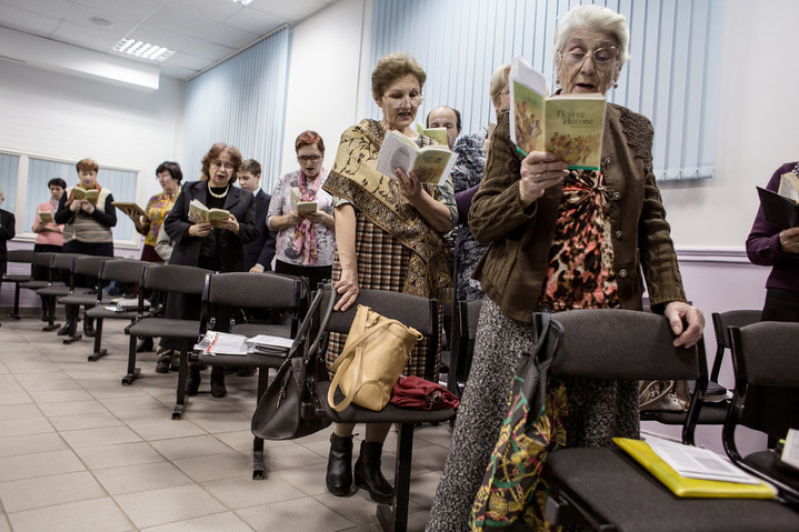
Jehovah's Witnesses are fighting back after Russia banned the religious organization from freely practicing their faith and declared them to be an "extremist group", placing them in the same category as ISIS.
On Tuesday, the group vowed to appeal a ban on its activities at the European Court of Human Rights in Strasbourg after Russia's Supreme Court upheld an April ruling which ordered the organization disband in the country.
"We plan to appeal this at the European Court of Human Rights as soon as we can," Yaroslav Sivulskiy, a member of the European Association of Jehovah's Christian Witnesses, told the AP.
"All legal avenues inside Russia have been exhausted."
As reported, Russia's Supreme Court earlier ruled in favor of the justice ministry, which had declared Jehovah's Witnesses an extremist organization, liquidating nearly 400 of its local chapters.
A lawyer for the justice ministry, Svetlana Borisova, told the court that the group "poses a threat to the rights of the citizens, public order and public security," according to media reports.
Under the ruling, distributing copies of the Watchtower, discussing their beliefs in public, or even worshipping at a meeting hall is now illegal. The Telegraph notes that Russia changed its legal definition of extremism in 2006, removing requirements for violence or hatred but stating the "incitement of ... religious discord" as criteria. Now, Jehovah's Witnesses are left with the same legal status as ISIS or Nazis.
Jehovah's Witnesses, who number 175,000 adherents in Russia, "strongly disagreed" with the court's ruling against it, but had no option but to comply, Sivulskiy said.
After the group's appeal was rejected on Monday, he told reporters that "religious freedom in Russia is over. It's a very sad situation for our country. As you could see today, there were no real facts of any extremism on part of Jehovah's Witnesses. It's all about bad literature and intolerance. Now anyone who studies the Bible can be jailed."
Newsweek notes that a survey from the independent polling agency Levada, released last week, indicated that 79 percent of Russians supported the ban, though more than half of the respondents admitted they knew nothing about the case. However, the ban has been widely condemned internationally, including by the United States and the European Union.
In a statement, the EU said: "Jehovah's Witnesses, like all other religious groups, must be able to peacefully enjoy freedom of assembly without interference" and added that Russia was bound by its constitution as well as its international commitments to provide such guarantees.
Some have warned that the ruling sets a disturbing precedent, as this case represents the first time the country has banned a registered religious group.
"If Jehovah's Witnesses are persecuted, then that means later 'on the block' will come other religious movements-for example, Protestant churches," law professor Anatoly Pchelintcev told Portal-Credo, an Orthodox news site. "For the Jehovah's Witnesses, Armageddon has arrived, and the faithful of other religions await the apocalypse."
The group's international website was blocked in Russia two years ago over alleged extremism, with its Bibles banned the following year, while a local chairman was jailed for two years on charges of possessing "extremist literature" in 2010.






